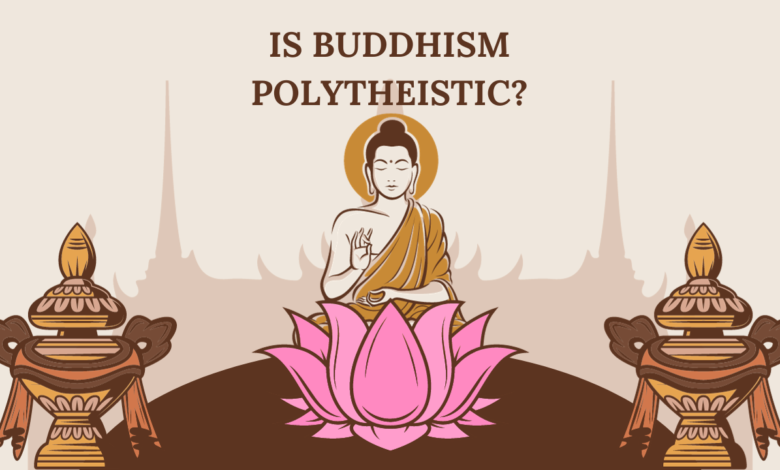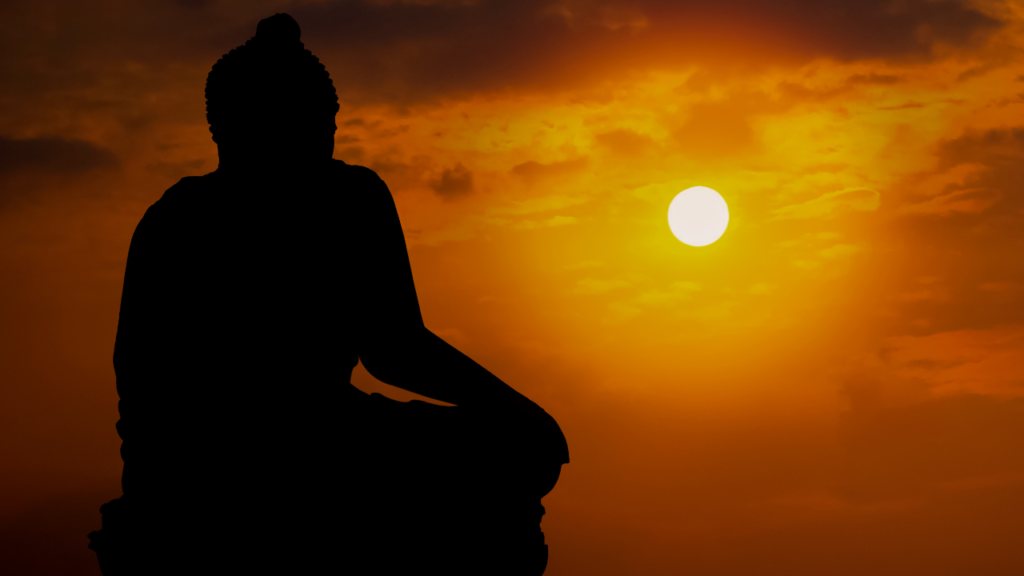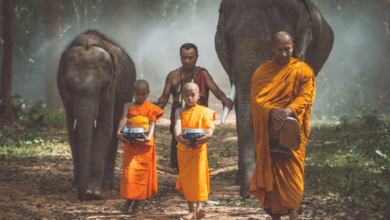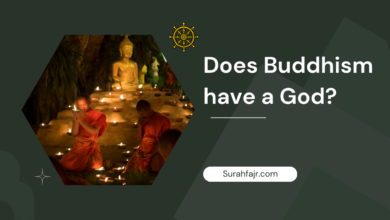
Is Buddhism Polytheistic?
No, Buddhism is generally considered a non-theistic or atheistic religion. It does not revolve around the worship of multiple gods or deities.

Introduction
Buddhism, one of the world’s major religions, is often a subject of curiosity and intrigue for those seeking spiritual understanding. Originating in ancient India over two millennia ago, Buddhism has various branches and schools that interpret its teachings differently. One common point of confusion revolves around the perception of Buddhism as a polytheistic religion, featuring multiple deities. In this article, we will explore the nature of Buddhism and investigate whether it is indeed polytheistic.
The Buddha: The Central Figure
At the heart of Buddhism is Siddhartha Gautama, also known as the Buddha. He is not a god but rather a human who achieved enlightenment through profound meditation and insight. The Buddha serves as a teacher and guide, and Buddhists follow his teachings and principles as a path to attain Nirvana, the ultimate goal in Buddhism.
The Dharma: The Core Doctrine
Central to Buddhist practice is the Dharma, which refers to the teachings and principles expounded by the Buddha. The Dharma encompasses the Four Noble Truths and the Eightfold Path, which guide individuals on their journey toward enlightenment. These teachings are not attributed to a deity but are considered a fundamental philosophy and moral code.
Also Check
- Does Buddhism have a God?
- Is Christianity and Hinduism related?
- How much is zakat?
- Is Hinduism Monotheistic?
- When I think of Christmas?
Deities in Buddhism: Understanding the Pantheon
While Buddhism is not strictly polytheistic, it does have a diverse pantheon of deities, spirits, and celestial beings. These beings play varying roles within different Buddhist traditions. In the Mahayana branch of Buddhism, some of these entities are venerated, and they are known as Bodhisattvas. However, it’s important to note that these beings are not creators or rulers of the universe; instead, they are seen as beings who have advanced along the path to enlightenment and have chosen to help others on their spiritual journey.
The Role of Deities in Buddhism
In Buddhism, deities and spirits are considered subordinate to the ultimate goal of achieving Nirvana. They are seen as beings who, through their own merit, have achieved higher states of existence, such as the heavenly realms. While they are admired and venerated, Buddhists do not seek to establish personal relationships with these deities or pray to them for salvation. Instead, they may seek guidance or inspiration from these beings on their path to enlightenment.
Monotheism vs. Polytheism
To determine whether Buddhism is polytheistic or monotheistic, it’s essential to understand the distinctions between these two terms. Polytheistic religions believe in the existence of multiple deities with distinct powers and attributes. On the other hand, monotheistic religions believe in a single, all-powerful deity who created and oversees the universe. Buddhism aligns more closely with neither of these definitions, as its focus is on the individual’s journey toward spiritual awakening rather than devotion to gods.
Conclusion
Buddhism’s complex relationship with deities can make it appear polytheistic to an observer unfamiliar with its teachings. However, at its core, Buddhism is not a polytheistic religion. Rather, it is a philosophy and spiritual path centered on personal growth, enlightenment, and the pursuit of Nirvana. While it acknowledges the existence of various deities and celestial beings, they are not the primary focus of worship or devotion. Instead, the Buddha’s teachings and the individual’s journey towards spiritual awakening are the central elements of Buddhism. Understanding this distinction is crucial for those seeking to grasp the essence of this ancient and profound belief system.
FAQs about Is Buddhism Polytheistic?
Is Buddhism a polytheistic religion?
No, Buddhism is generally considered a non-theistic or atheistic religion. It does not revolve around the worship of multiple gods or deities.
Who do Buddhists worship if they are not polytheistic?
Buddhists primarily focus on the teachings of Siddhartha Gautama, also known as the Buddha, and the pursuit of enlightenment. They do not worship a divine being in the way polytheistic religions worship gods.
Are there any gods in Buddhism?
Some forms of Buddhism incorporate celestial beings or gods into their cosmology. However, these beings are not considered ultimate or creator deities, and they do not play a central role in Buddhist practice or belief.
What is the role of gods or deities in Buddhist traditions that include them?
In some Buddhist traditions, celestial beings or gods are seen as powerful but still subject to the cycle of birth, death, and rebirth. They are not sources of salvation, and Buddhists do not seek their help for liberation from suffering.
Do Buddhists pray to gods or deities?
Buddhist practices may include rituals or ceremonies that involve offerings and devotional acts towards celestial beings, but these are not considered prayers for salvation. Buddhists primarily engage in meditation, self-reflection, and ethical living to attain enlightenment.
How does the concept of karma fit into Buddhism’s view of gods or deities?
The concept of karma in Buddhism is not dependent on the actions of gods or deities. It is a belief that one’s actions, both good and bad, have consequences in this life and in future rebirths, based on the individual’s choices and intentions.
Are there any Buddha-like figures in Buddhism, similar to gods?
Some Buddhist traditions venerate Bodhisattvas, who are individuals on the path to enlightenment, similar to the historical Buddha. Bodhisattvas are revered as compassionate beings who can provide guidance and inspiration but are not gods.
Is there a specific sect of Buddhism that is polytheistic?
While some Buddhist sects or traditions incorporate elements of polytheism, they are not considered mainstream Buddhism. The majority of Buddhists follow non-theistic or atheistic principles.
Can one be a Buddhist and believe in gods from other religions?
Buddhism is often compatible with other religious beliefs, and some individuals may integrate aspects of other faiths into their personal Buddhist practice. However, in its purest form, Buddhism is not centered on god worship.
How do Buddhists view the concept of a single, all-powerful god?
Buddhism does not deny the existence of gods or a single, all-powerful god, but it does not rely on such a deity for salvation or liberation. Buddhists are more concerned with individual spiritual development and the alleviation of suffering through their own efforts.

